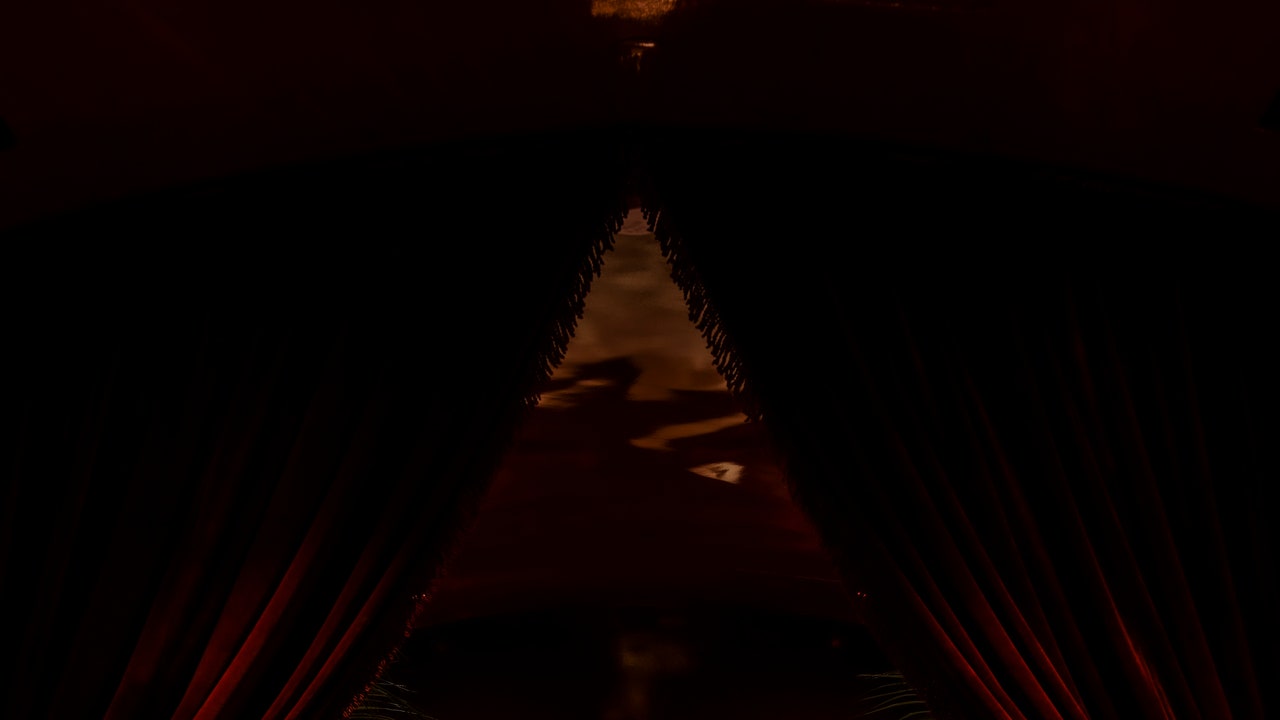Chez Margaux, a new private member’s club in Meatpacking, is one of the few places in New York where I didn’t mind waiting. The entrance—just off of 13th Street and Ninth Avenue—is moody, red, and lacquered, like the backstage of a cabaret during the Gilded Age or a hidden room within the walls of Versailles. A black and gold desk is covered in melted wax from white tapered candles, while a real fireplace roars on. In the corner is an honor bar, where you can mix your own negroni as you take it all in.
You may even want to linger there—until you discover what’s just down the red-carpeted stairs: a Jean George restaurant, a sushi lounge, and a caviar-champagne room that turns into a nightclub, Gaux Gaux, once the clock strikes 11.
Courtesy of Chez Margaux
“We really want to create something more in the mold of this European, London-style members’ club,” head of Margaux Hospitality, Kyle Hotchkiss, tells Vogue. (“We,” here, is Hotchkiss and Michael Cayre, who also developed the Seaport’s Casa Cipriani, along with interior designer Lauren Mishaan.) Here’s what they mean: While most private members’ clubs in America are all-day spaces with programming and amenities—and the hefty dues to reflect it all—in London, many are more like a private restaurant and lounge. You go there for a great meal and chic night with your friends without worrying about things like reservations, crowds, or what time you need to get up from your booth; and at some point you end up bopping around from table to table, bar to bar, with a martini in hand. “If you go to Annabel’s or 5 Hertford in London, it’s a maze of rooms—it feels like some version of a home that’s full of things that have been collected or given to you,” Hotchkiss says. (Visually, Chez Margaux also pays homage the theatrical, Jacques Garcia-designed rooms of Hotel Costes in Paris.)
Indeed, Chez Margaux is full of oddities: Hotchkiss sourced furniture, books, and objets d’art from the Battersea Antiques Fair, including murano glasses, an Egyptian Revival bronze marble candelabra, hand-shaped sconces, a ceramic rhino lamp, and a 17th-century Italian mirror. “We wanted to mix the periods in a way that it all still fits a certain vibe—but it doesn’t feel like we have a theme,” he notes. (If there were a theme, it might be animal print—cheetah carpets blanket the floors in one room, while a de Gournay monkey print covers the walls of another.)
Read the full article here




